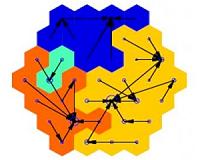| . |  |
. |
Tubingen, Germany (UPI) Feb 1, 2011 Human brains store memories during sleep, and specifically preserve memories identified as important during waking hours, German researchers say. Researchers at the University of Tubingen conducted a study in which 191 adults performed memory tasks like memorizing word-pairs. Half the group was then told it would be re-tested on that task 9 hours later, while the other half was told to expect a different task, NewScientist.com reported Tuesday. During the 9-hour interval, some members of each group were allowed to sleep. Those who slept expecting a re-test of their task recalled 12 percent more word pairs than those sleepers who had no expectation of being tested again on the same information, researchers found. They had more slow-wave sleep, known to be linked to memory consolidation. Those subjects told to expect a re-test but not allowed to sleep did not perform as well, researches said. The results improve our understanding of sleep, researcher Jan Born says. "There is an active memory process during sleep that selects certain memories and puts them in long-term storage," Born says. The study is "very convincing," Penny Lewis, who studies memory and sleep at the University of Manchester in the United Kingdom says. "It looks like if you tell someone something is important, it gets enhanced more," Lewis says.
Share This Article With Planet Earth
Related Links All About Human Beings and How We Got To Be Here
 Mathematical Model Explains How Complex Societies Emerge And Collapse
Mathematical Model Explains How Complex Societies Emerge And CollapseBethesda MD (SPX) Jan 21, 2011 The instability of large, complex societies is a predictable phenomenon, according to a new mathematical model that explores the emergence of early human societies via warfare. Capturing hundreds of years of human history, the model reveals the dynamical nature of societies, which can be difficult to uncover in archaeological data. The research, led Sergey Gavrilets, associate director for ... read more |
|
| The content herein, unless otherwise known to be public domain, are Copyright 1995-2010 - SpaceDaily. AFP and UPI Wire Stories are copyright Agence France-Presse and United Press International. ESA Portal Reports are copyright European Space Agency. All NASA sourced material is public domain. Additional copyrights may apply in whole or part to other bona fide parties. Advertising does not imply endorsement,agreement or approval of any opinions, statements or information provided by SpaceDaily on any Web page published or hosted by SpaceDaily. Privacy Statement |